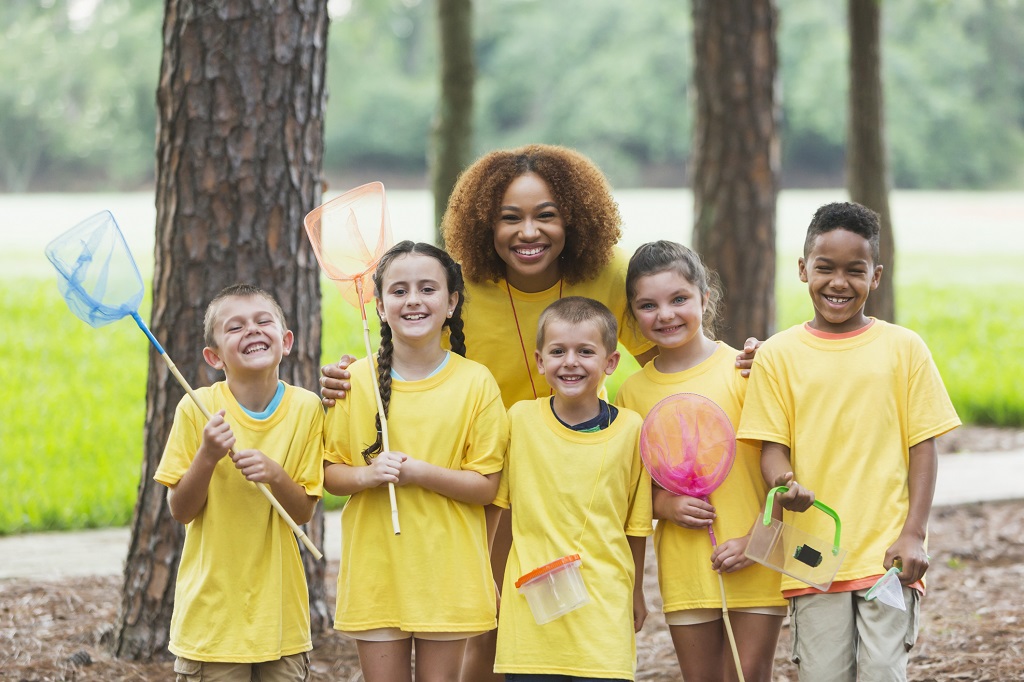
16 Nov How camping will help your kids?
One of the main concerns of parents is knowing what is the best option for their children to enjoy during the school holidays. For some parents it is a time for children to play and have fun; for others, an opportunity to further their studies or learn new skills. According to experts, there is a single destination that allows children to play outside while developing new skills for life, it is called camp. And in this sense, the benefits of summer camps are many. As no child is the same as another, here we leave you a wide variety of camps for you to choose the one that best suits your child.
The director of the Research Network of Healthy Communities at the University of Waterloo in the United Kingdom, Troy Glover believes that the benefits are many. From life lessons beyond the classroom, the value of playtime, teamwork, learning to appreciate nature, to developing confidence and leadership skills. “The dramatic changes in children’s personal growth say a lot about the summer camp experience,” says Troy Glover.
Benefits of the camps
The benefits of summer camps are vast. Children have the opportunity to live with children of their age and enjoy unforgettable moments. Because the emotional and educational learning of this experience will have a very positive impact on their personal growth and development. Here are some of the main benefits of camps, according to the University of Waterloo:
-
Friendships and social skills
The camp provides the ideal environment for children to take social risks. Obviously, at first, entering an unfamiliar social world can be scary. After the adaptation period, they learn to deal with new people by developing their social skills, exploring their independence, and improving their self-esteem.
Stephen Fine, research director for the Ontario Camp Association, says: “Teamwork, cooperation, and negotiation are inherent in the camp experience. Children’s confidence levels and their ability to cope with social situations increase. They learn to make their own decisions without the help of their parents.
-
Resilience and confidence
Another benefit of the camps is in the area of emotional intelligence. This competence involves actions such as recognizing, understanding and controlling emotions. Children learn to relate, to interact with other people in positive ways, to empathize, and to connect with others.
“The experience helps develop children’s emotional intelligence and empathy,” says Troy Glover. In his opinion, the camps encourage young people to get out of their comfort zone through their activities. It also “teaches them to face failure, to know their limitations, and discover areas where they can improve.”
The diversity of camp activities allows each child their opportunity to succeed, as challenges are viewed as challenges they can overcome.
-
Focus on the physical plane
It is difficult to compete for the attention of children with the diversity of devices, applications, and social networks that they have at their fingertips. A recent Statistics Canada study found that only 7% of young people ages 6 to 19 get the recommended amount of physical exercise they need.
Many camps, in addition to banning the use of electronic products, provide a daily routine that involves getting up early, being physically active, having regular meals, and spending long periods outdoors.
In the camps, physical exercise is present and disguised as fun. Children learn what makes them feel good and contribute to their well-being. Games and different activities allow them to adopt a healthy lifestyle almost without realizing it.
-
Nature deficit
Unlike other generations, the link with nature is absent in the lives of many children. “They may be aware of environmental issues, but they rarely venture to experience the natural world,” says Richard Louv author of the book, The Last Boy in the Woods.
“Even urban camps usually have an outside part,” says Glover. Children need nature for the healthy development of their senses, for learning and creativity. All the more reason to connect with outdoor adventures away from screens.
-
Leadership values
Confidence, creativity in decision making, and an understanding of teamwork are some of the qualities that many leaders share. It takes practice to become a good leader.
Moira MacDougall, director of the youth strategy at the YMCA of Toronto, explains how in a camp “you often have to trust your teammates to complete an activity.” A bond is formed within the group “and in this process what you hope is that the young person learns to have a voice in the team, or to be persuasive.”
“Kids don’t go camping to be more self-aware or better leaders; they go because it’s fun. Positive results are the result ”, says Troy Glover. ” They learn that we all have a role to play in contributing to a better society. ”
-
Continue educating
“It’s not just cognitive learning that counts, it’s emotional learning, too,” says Tom Potter, associate professor at Lakehead University in Thunder Bay, Ontario. Learning is more than textbooks and tests.
The comments guide the children in carrying out the activities. “If they go canoeing and they are doing well, they are told they are going in the right direction. And if the canoe capsizes, nothing happens, everything is part of the game and the learning, ”says Potter. “The kids will be so busy having fun that they won’t even notice they are learning.”
-
Free and active play
Many children today do not enjoy unstructured play enough. “Young people’s time at school, at home, or watching television has increased, and active playtime has decreased,” says Michelle Brownrigg, Executive Director of Active Healthy Kids Canada.
Camp gives children the playtime they need and encourages creativity and social engagement. “What’s really unique is the opportunity for children to explore creative activities without being so directed by adults,” says Brownrigg.
Currently, thanks to the specialization of the camps, you can choose the one that best suits the needs of each family.


No Comments